EDITOR’S NOTE: As this story suggests, we all thought Gene Schafer would live forever, or as he liked to say, “Long enough to piss on all of your graves.” He was like nobody else—outspoken and blunt beyond description, caring and tender in a rough-hewn sort of way. Honest (mostly) to a fault. He was a friend to me at times when I needed a friend the most. That’s what I loved about Gene–he was best in a crisis. When we lost him five years ago, we all said, ‘Monticello will never be the same again.’ We were right…JS
Late one winter morning, a couple of years back, Gene Schafer was busy at work on a Toyota Corolla. He was working alone in his shop, as he usually does, with the bay door closed and only the fire in his huge homemade wood stove to keep him company. He had the rear end of the car on jacks, had 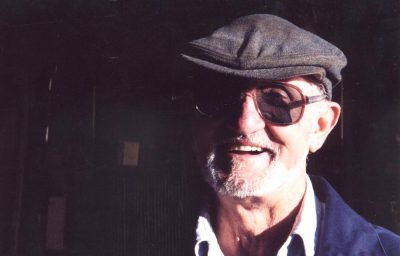 yanked the wheel to get a better look at the frame, and was trying to pull off the McPherson strut. Suddenly, the spring-loaded strut broke loose and the force of it drove into Gene’s lower jaw and pinned his head to the inside of the wheel well.
yanked the wheel to get a better look at the frame, and was trying to pull off the McPherson strut. Suddenly, the spring-loaded strut broke loose and the force of it drove into Gene’s lower jaw and pinned his head to the inside of the wheel well.
So here he was, alone, the doors locked, nobody within hollering distance, with his head squished between the sheet metal wheel well and the mean end of a McPherson strut. Like a grapefruit in a vice. Blood was squirting from the wound which should have snapped his jaw like a pretzel and for a moment, Schafer thought he might pass out.
But he took a deep breath, tried to appreciate his situation, and then said out loud, to nobody in particular, “I’ll be goddamned if I’m gonna end up dying like this.”
And Gene Schafer did what he always does–the improbable, or the downright impossible. With one hand, he managed to pry the strut from under his chin, something two men could not accomplish under normal conditions, and pulled himself out of harm’s way. The entire right half of his face was blue from the bruises and swollen to the point where that side of him was “beyond recognition.” And he could barely use his whacked up jaw to chew food.
But he managed. Later that afternoon, he was back on the job, trying to finish up the work he’d had to briefly abandon that morning. After all, he was in reasonably good shape otherwise. And he was only 72 years old at the time.
 That’s Gene Schafer. There are some people who are a legend in their own mind. Schafer is the rare individual who is a legend in his own time. That’s why I can assure you, not long after he reads this, I’ll hear a pounding on my door and there will be Gene, shaking his head with The Zephyr in his hand and he’ll say, “What’s all this bullshit about me being a legend?” But he’ll also have a bottle of Scotch in the other hand, wrapped in a grease rag. And then he’ll say, “…to hell with it…You got any ice?”
That’s Gene Schafer. There are some people who are a legend in their own mind. Schafer is the rare individual who is a legend in his own time. That’s why I can assure you, not long after he reads this, I’ll hear a pounding on my door and there will be Gene, shaking his head with The Zephyr in his hand and he’ll say, “What’s all this bullshit about me being a legend?” But he’ll also have a bottle of Scotch in the other hand, wrapped in a grease rag. And then he’ll say, “…to hell with it…You got any ice?”
Gene Schafer contains multitudes. He was born in Texas, moved to southern Utah when his dad saw an ad for free homestead land near Monticello. He knew practically nothing but hard work for most of his youth, but still found time to appreciate the joys of swing dancing, pretty girls, a taste for good whiskey and a well-tuned fast car. He’s walked and hunted and rode a horse over much of San Juan County, but also ran southeast Utah’s only ski resort for 20 years. He slaughters his own beef each spring, but claims his good health can be attributed to the two or three cloves of garlic he eats whole every day (he keeps a jar of them –pickled with hot jalapenos–in the fridge in his shop). He appreciates good Scotch and prefers Glen Leavitt, but will settle for cheap brandy in a pinch.
He’s the most honest man I’ve ever known, which causes both chuckles, frowns and a squirm or two from a broad range of friends and adversaries. He grew up a Gentile in a community that is 90% Mormon; yet he has earned the respect of practically everyone, regardless of religion, because in the end, Gene Schafer is a straight-shooter. He never tries to be anyone but himself, and in this godawful time of political correctness and pained pretension, just his ‘tell-it’like-it-is’ approach to life makes him a unique and unforgettable man. He once told San Juan County’s most celebrated curmudgeon/misanthrope that he, “crapped too close to the house,” and not only lived to tell the tale, he made the guy laugh.
No one could ever call Gene Schafer a phony. Some people work hard at being a character; with Gene it just comes naturally. And he tells the story of his remarkable life in a most unremarkable way–as if everyone has shared in the same kind of adventure…
“My mother’s brother, my Uncle Aaron had worked in the hayfields near Montrose and Delta, and he brought back a little government booklet about homestead land in Utah and Colorado. So Dad got a hold of a little money…this was during the Depression..and he and Aaron came up here and found this country. They looked at the Yellowjacket area first but it was too flat–reminded him of Texas. Dad saw these mountains and just kept going. There was a piece of ground out here that talked to him so he got it. Someone had settled on it back in the early 1900s and abandoned it. But they left a little cabin and Dad wanted it. Then he brought us all out to live.”
His dad needed work and started to sign up with the CCC (Civilian Conservation Corps) but when word got around that his dad was a whiz with engines, the lumber company that ran a mill up on the Saddle in the Blue Mountains hired him as a mechanic. But everyone in the family worked…
“In the winter, we’d go out to the ranch in the snow, and I’d wrap me legs in burlap sacks and tie them with baling wire..the snow won’t stick to burlap…and we’d walk out into the trees and cut cedar posts. Then I’d carry them back. We’d get thirty cents a piece for them and sometimes I could make six or seven dollars a day. We could live a couple of weeks on that.” They lived on the ranch for a few years, but when the kids needed to attend school in Monticello, his father bought a piece of ground in town (“I think he paid twenty-five dollars for it.”), hauled some logs off the mountain, had them milled and built a new home for the family.
But almost from the time he could remember, Gene loved cars. He had his father’s gift for fixing things, especially cars and trucks, and by the time he was in the 9th Grade, Schafer was already working at a service station. “I was just hanging around the co-op washing windshields and I thought I was pretty smart…One night I was there and Raymond Compton, the fella that worked there full-time, took off and went to Grand Junction and told me to watch the place. But that night the boss showed up and pretty soon he offered me the job. So I was working eight hours a day at the station and going to school six…This was in the mid-40s. Me and the teachers were the only ones that had cars at school. I had an old ‘27 Chevrolet. In fact, I used to work on all the teachers’ cars or else they wouldn’t have graduated me.
“Toward the end of high school, I bought a ‘41 Plymouth down there at the Chevrolet garage. I paid $29 a month or something like that on payments. This was in ‘48 or ‘49. I bought it from Tommy Nielson who was a salesman down there. He was star of the basketball team too. Selling cars and still going to school. That’s how it was in those days—everybody worked.”
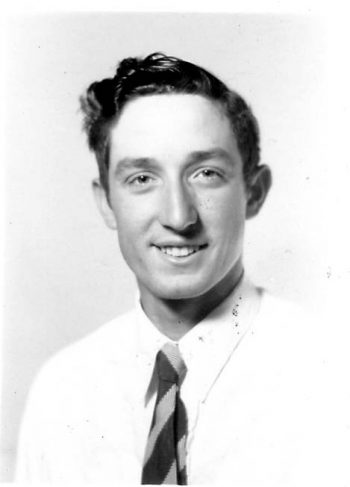 But a year later Gene joined the Army. Did he volunteer?
But a year later Gene joined the Army. Did he volunteer?
“No…I was sort of asked to join because I was bootlegging wine.”
Schafer had to tell this story…
“Well, I was at the station and this guy named Bob got thrown out of a car. I was just standing there and it was late at night. So Bob says, ‘Is that your car?’ and I said it was. He said, ‘I’ll give you $20 to run me to Dove Creek.’ So I thought, Man that’s ok. We drove there and loaded up with nine cases of wine and then when we got back, he said, ‘I’ll give you another $20 to drive me to Bluff. I thought, it’ll be sunup before we get back. But I was only making $75 every two weeks at the garage. Then he said, ‘How about $30,’ and I said, OK.’ So I started doing that every two weeks . He’d get five bucks for a bottle and he was only paying ninety cents in Dove Creek. So they were wondering how all that wine was getting down there and here it was this little kid in high school bootlegging it.
“So then my dad and the sheriff spotted me going down the road and I got caught. This was during the Korean Conflict and they sort of gave me a choice of the Army or reform school or something. Hell, I was old enough to go in the service anyway, but I had more fun in the service than anywhere else. By the time I got in there, the Korean thing was winding down, so I ended up going to Germany. You see, when I signed up, they asked me if I could speak a foreign language and I said German, because my father’s dad had come over here to get away from the Kaiser. But I didn’t really speak German, except I knew some cuss words. But hey, after I got over there. I started to pick it up pretty good.
“I think that was the most interesting time in my life. Whenever I had some time off, I’d travel. I didn’t smoke so I saved a lot of money. I’d sell my cigarette rations and would use that money to take off. I went all over, even skied all over the Alps.”
Now you wouldn’t think a kid who grew up on a ranch, hauling fence posts, working on truck motors and bootlegging wine in one of the most remote sections of the Lower 48 would know the first thing about skiing, but as usual, Schafer doesn’t fit the mold…
“When we lived out at Dodge Point, Dad would ski out there and back, about five miles cross-country and he’d pull a sled to haul things. Kent Frost made the first pair of skis I ever saw out of a 2 x 6 that he’d planed. But Dad bought us our skis and used to pull us with a rope down the side of the highway. Like waterskiing down the road. And we’d get behind horses, and it was sort of dangerous, but it was a lot of fun.”
Schafer got out of the service in ‘53 and worked in the uranium mill for a while. In ‘55 he was the first man to drive a dual-axle ore truck up the old Comb Ridge Dugway. “It was sort of sweaty and hot on that hillside. The truck would vapor-lock a couple of times but I’d figure it out and go on…it was a hundred feet or more over the side of that dugway. There’s a bunch of cars still at the bottom of that gulch.”
Like so many others who lived in southeast Utah in the ‘50s, Gene worked for and knew the “Uranium King,” Charlie Steen. “I used to go up to his parties and I dated Charlie’s partner, Mitch Melich’s daughter for a while…she liked me because she loved a good dancer. And I had a ‘56 Lincoln too. I was the best dancer in high school. Clear up to a few years ago, people would ask me to teach them to dance.
“I was in Cortez once and this girl came over to pick me up to start dancing. Pretty quick, I said, ‘Why don’t you come over and sit at my table?’ and she said, ‘No…my husband is sitting over there,’ and then she says, ‘Why don’t you come over and sit at our table?’ And so I did. I ended up getting 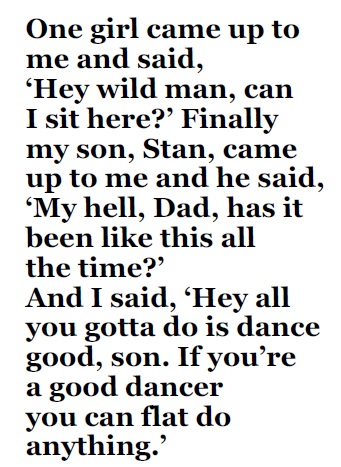 invited to their house and I taught him how to dance. But if a guy’s got two left legs and they’re both on the right side, well hell, you can’t teach him how to dance.
invited to their house and I taught him how to dance. But if a guy’s got two left legs and they’re both on the right side, well hell, you can’t teach him how to dance.
“When my kids were in high school, up in Price, I used to go to the college dances, and pretty quick I’d be dancing. And then another girl would come up to dance and they’d meet me on the dance floor. One girl came up to me and said, ‘Hey wild man, can I sit here?’ Finally my son, Stan, came up to me and he said, ‘My hell, Dad, has it been like this all the time?’ And I said, ‘Hey all you gotta do is dance good, son. If you’re a good dancer you can flat do anything.’
Gene left Monticello twice, first in the late 50s, to work as a Diesel mechanic in Fresno, and then again, in the mid-60s. He came back from Fresno in the early 60s and ran the tractor on the family farm when his dad became ill. Gene returned to California in 1965 for a few years and worked in Balboa, Van Nuys and a few other places, working on condos, but never could really take to the place. “Too many people. I tried to think of something I liked about it, but I can’t…it was just different. Too many people. Hell, people have more respect for each other on a stock car track than they do on a freeway.”
When Gene came back to Monticello, he worked at the Chevrolet garage for a decade and he also did the stock car circuit in towns around the Four Corners and he ran the farm and he started his own shop and towing service and he got married–it’s always hard to trace Schafer’s chronology because he was always doing seven things at the same time…
“…and I had a couple of brats. Two kids…most people say they had kids, but I always say I had Superstars, you know. They’re good workers but they thought they were playin’. When I went on a wrecker call in the middle of the night, they’d come with me. I’d take out 30% and I’d give them half of what was left. They’d come along and sweep the glass off the roads an everything. Rigby Wright, the sheriff, would say, ‘Gene, you’re breaking your crew in early,’ and I did. They had little brooms and they worked hard.
“When I decided to start my own business, I bought that land on Third East and tore down the old cabin and built my home. Owen Severance helped me build the shop. He said he didn’t want anything for helping me build it, except to be able to use the shop to work on his own car. So here it is, all these years later and he’s still coming in…I figured somebody’d have killed him by now, but he still stops by a couple times a week. He’s college-educated but I can’t hold that against him.”
It was also during the ‘70s that Schafer got involved with the Blue Mountain ski area. Of course, he’d always been a skier, and he had really honed his skills while he was in the army in Europe. But in the late ‘50s, a group of Monticello citizens developed a ski area in the Blues. “Grant Bunson put up $27,000 to get it started. Then the townspeople got up there and cleared the land with a front end loader. It was kind of a cliquey thing for a while. Sort of a private ski area. They didn’t even want tourists to use it.
“Anyway I’d been working on the towers and been involved in the maintenance, and finally they came to me and wanted me to be on their board of directors. I had all this other stuff going on with the farm and the shop and didn’t really want to be on the board, and finally they just came to me and said, ‘Here, it’s all yours.’ and I ended up with my name in all the ski magazines.’ I made some changes…we started staying open Friday through Sunday, and we’d get people from Grand Junction and Cortez. The Indians used to come in from Shiprock by the busload. But they all liked this hill because it wasn’t groomed and we had the moguls…those moguls made a man out of you. You talk about neat. You could feel that in your legs. And all the guys from Moab, the river rats, I called them, I’d let ‘em in for nothing. Of course, the kids were up there working with me all the time. Hell, they’d go up the towers to fix shorts.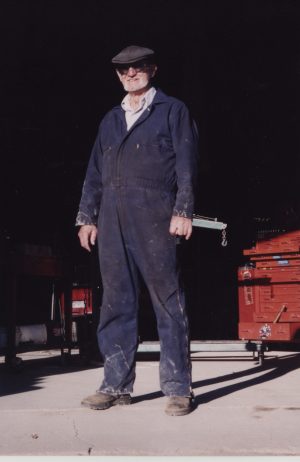
“I hired a girlfriend of mine to collect the tickets and she also sold hot dogs and made some extra money. And a guy from Slavens came over to rent skis. We did ok.”
But in the late 70s, two factors conspired to shut down the Blue Mountain ski area—rising insurance premiums and no snow…
“We were paying $5600 a year for insurance and then we had a bad snow year. The next year the premiums went to $9000 and the snow wasn’t much better. I asked what was going to happen the next year to the premium and they said $16,000. So the premiums went up and the snow went down. Finally in the early 80s, we shut it down and that was the end of it. Now, there’s just a few of the cables up there.
“There’ve been some stories about the ski area—they did a show on KUED and it made the Tribune. I was even ‘Citizen of the Year’ in ‘68. But we never did get enough snow to start it up again. Some guy asked me what we could do to start it up again and I said nothing. He said, ‘You’ve got a negative attitude Gene,’ and I said, ‘No, I don’t…we just don’t have any snow!’ I think the last year was ‘82.”
Even though the ski area was gone, Schafer managed to stay as busy as ever. He was legendary for pulling stranded, stuck or broken down vehicles out of the backcountry with his trusty tow truck. Again, he does the impossible…
“I used to drag cars out of Canyonlands—Beef Basin, Bobby’s Hole. I pulled a lot of them out of there. But nobody can go where I go. I used to tell them, ‘I can go places you can’t even walk.’ I remember one guy I pulled out of Bobby’s Hole. It was a five or six hour haul out of there and so there was a lot of time to talk. But every time I asked him what he did for a living, the guy would change the subject. Finally when we were almost back, I asked him flat out and he looked at me sort of funny and said, ‘Well…to tell you the truth, I work for the Internal Revenue Service. I’m a tax auditor.’ I kind of laughed and said, ‘I guess it is a good thing you didn’t tell me ‘til now. If you had I would have left your ass back there in the canyons.’”
Gene still wakes up before dawn, still heats his home and shop with wood that he cuts and hauls to town from his ranch. “I got about 20 cords but I guess I better get some more, just in case.” Still munches on whole garlic cloves as if they were peanuts. Still works on cars almost every day of the week and never gets tired of it either. “I look at every broken down car as a challenge…I love figuring it all out.” And he still speaks his mind to just about anyone he feels like speaking his mind to. “Some of them aren’t worth talking to at all,” he explains.
And in a part of the West where religion plays a major role in daily life, Schafer hasn’t much use for any religion. “I never thought about joining any church. You can take a Bible and put your own words into it. And that isn’t right. You can quote it, but just quote the words. Don’t go trying to change it. One day back in the ‘40s, a lady here came up to me from the Baptists and asked if I’d get up and lead the service. They didn’t have a preacher for that day. And I said. ‘Ok, but I’ve got an idea..I want to ask the congregation some questions about how to solve some people’s problems.’ And so that’s what we did. We all tried to figure out how to help each other. But then the preacher from Dove Creek came over and said, ‘I hear you’re saying all kinds of things to the congregation and we don’t do it like that in this church.’ So that was my last preaching job…I figured I could just have Gene’s Church from then on.
“I never could stand two-faced people…if you tell somebody something one way, and then you go up the street and tell it some other way…well, that isn’t right. You got to treat people like you want to see them the next day. If they’re two-faced, I like matching wits with them. People know I tell it straight…I got 27 votes for mayor once and I wasn’t even running.”
Gene Schafer, at 74, doesn’t plan to retire—ever. He’s still as tough as a ten penny nail. He once told a man who seemed to be thinking of popping Gene in the nose, “I never seen you fight anybody unless they was twice your age and drunk..and I sure as hell ain’t drunk.” He was a kid and Gene let him have it without ever throwing a punch. “You kids think you’re something but you’re not…hell, you probably can’t piss hard enough on the ground to make foam yet.”
POW!
If he gets sick of working on a car he’ll walk away from it for a while, but he always comes back. “Every broken down car is a challenge, but then again, people are a challenge too. My brother Victor pointed out to me once that when these people who are 2000 miles from home, when they break down and you’re working on their car, you bring them in and give them a beer and pretty soon, they’re having more fun than if their cars had kept going. People from all over the country come back to see me…just to see if I’m still alive.”
Last week I stopped by to see Gene. He was in the shop, under a Ford 150. He slid out from under the chassis and stood up to say hello. But I had to back off a bit. “Damn Gene…you’ve been eating your pickled garlic cloves again!”
“Damn right,” he said. “Nobody may want to come near me, but I’ll outlive all you sons of bitches.”
He probably will.
Our buddy Gene died on June 15, 2011. As he requested, Gene’s ashes were scattered over his beloved Abajo Mountains, west of Monticello. “That way,” Gene once said, “when some son of a bitch looks in his coffee and sees a little speck of something floating in it? Hell that just might be me.”
Jim Stiles is Founder and Co-Publisher of the Canyon Country Zephyr.
To read the PDF version of this article, click here.
To comment, scroll to the bottom of the page.
Don’t forget the Zephyr ads! All links are hot!

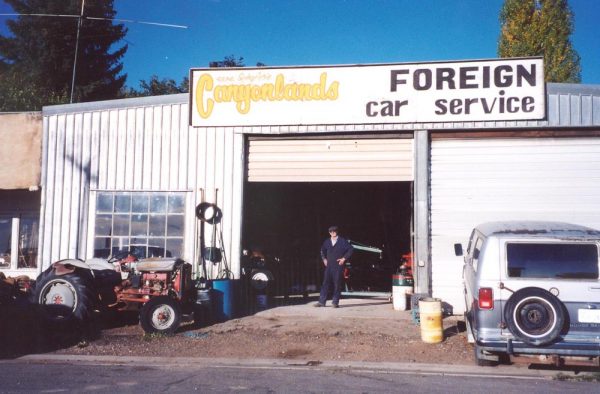
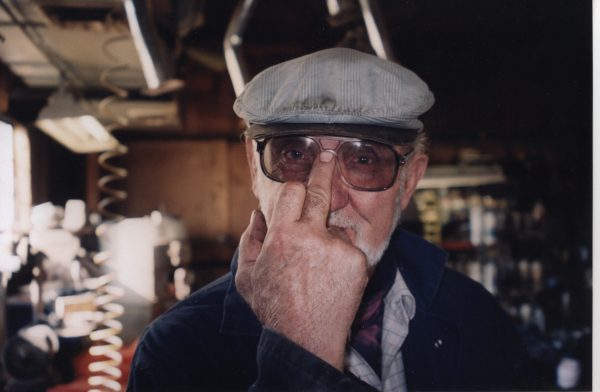


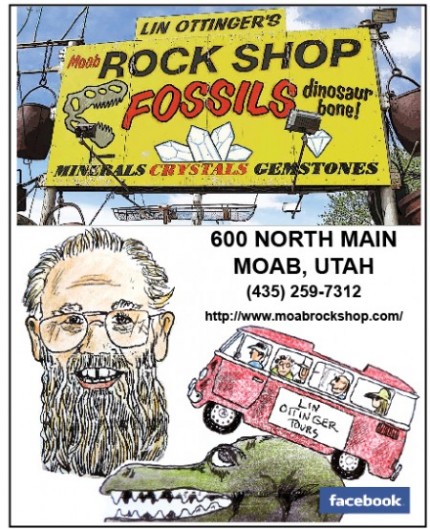

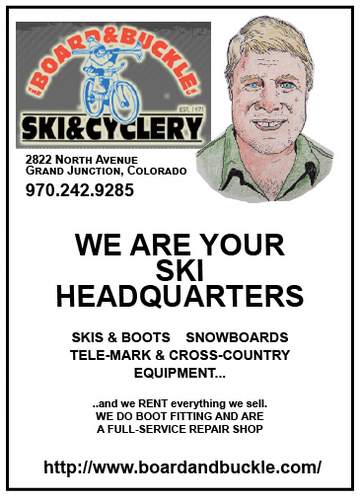
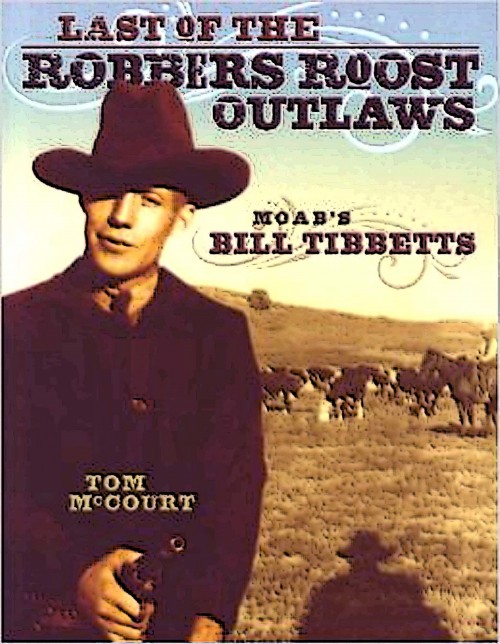


Stories like this are why I read the Zephyr here in New Hampshire. Keep them coming.
I enjoyed walking down memory lane ! Made me cry, I miss my Uncle Gene !!
I danced with him. Hed say come on spratch ass these women can’t keep up with me ! I’d copy his moves and have the time of my life ! He taught me how to drive, on the wrecker.. he taught me how to change out tires and balance them.
Gene was a hero to many… all over the world. And he was my friend. Glen levit. Shared many bottles with him. He may be resting in peace… but the angles are trying to figure out how he escaped… love and miss you bud. Bob D.